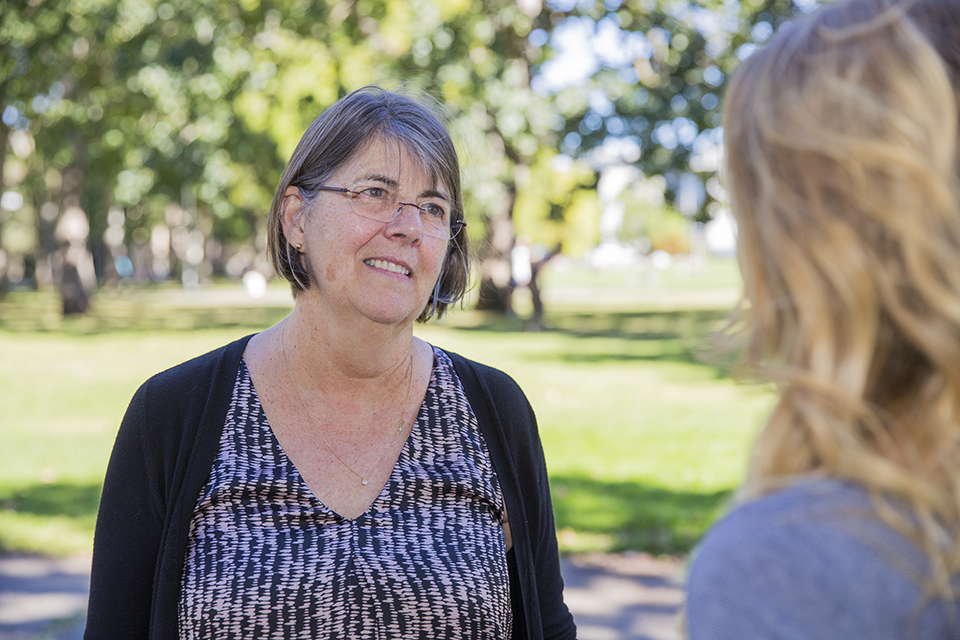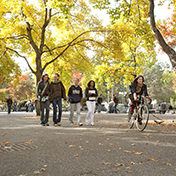Expert Q&A on youth and cannabis use

How often youth use cannabis and the effects on their health continue to be problematic, according to a new report on use and youth in Canada. UVic psychologist Bonnie Leadbeater, who led a 10-year study (announced in 2018) on cannabis use in the transition to young adulthood, says the research shows youth who start using cannabis before age 15 and become chronic users suffer the most negative consequences of addiction over the long term.
It is based on data collected over a decade (2003 to 2013) from a randomly recruited sample of 662 youth from British Columbia.
The latest findings were released this week as part of a Canadian Institute of Health Research (CIHR) grant.
Leadbeater delves deeper here into the effects of cannabis use on youth.
Q. What is a key takeaway when it comes to youth and cannabis use?
A. Today’s youth are more educated about the risks of cannabis, such as driving under the influence. There is more awareness about the risks of cannabis use. But still 10 per cent of youth in BC are regular users and many are experiencing addiction issues.
We know it’s about the pattern of use—the way youth use is what matters—that is the key to understanding the effects. We ask youth to think about whether their use of cannabis is disrupting their daily activities. It is very important for young people to stay on track with school, relationships and work during this period of their lives.
Q. In your opinion, has COVID-19 impacted how youth are using cannabis?
A. Yes, certainly we are seeing the impact of the pandemic on youth in terms of their mental health and how they use cannabis and alcohol.Young people are struggling with the pandemic and many are experiencing isolation and depression. There appear to be some youth who are using cannabis and alcohol less because they are socializing less in bars and clubs.
But there are others who have increased cannabis and alcohol at home because it costs less than going out.
Q. Was there anything surprising in this report on youth and cannabis use?
A. The fact that one in three youth is using cannabis in a way that becomes problematic is very concerning. Whether young people are starting very young (under age 15) or whether it is chronic use that grows over time into young adulthood, the pattern of use is concerning and the negative impact on young people’s lives is clear, especially since alcohol is also used heavily.
Q. What are some of the key recommendations of this final study?
A. More awareness and education are necessary so young people can understand how cannabis affects their life now and in the future. For instance, if they use once a week or more, they may be experiencing an addiction. Our research also found that higher use of cannabis occurred in typically male-dominated jobs, such as construction and trades work.
Another key recommendation is to include public warnings about using cannabis to treat anxiety, depression or sleep issues. Research has shown that cannabis does not in fact help with these types of issues.
Seeking help is an important message for young people who may be experiencing addiction or mental health issues. It is important for youth to know they can get help through parents, school counsellors, teachers and health care professionals.
Q. What are the next steps in this research?
A. We have undertaken work to evaluate the impact of a Canadian adaptation of eCHECKUP, an online motivational interviewing program for youth who would like to learn about or reduce their cannabis use.
Ongoing work also focuses on increasing understanding of the motivations for cannabis use and protective factors against early onset use, as well as associations between mental health and cannabis use.
Accelerate COVID-19 recovery
Research plays a vital role in solving the world’s big challenges including how communities respond to COVID-19.
UVic’s Research Accelerator Fund is a seed fund that will support and boost research at our university.
Photos
In this story
Keywords: health, youth, research, COVID, Research Accelerator Fund, psychology, administrative
People: Bonnie Leadbeater





